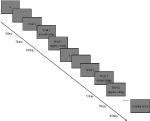

Build activities into your week that will replenish rather than drain you.

Replenish your energyįeeling drained and depleted can make you more reactive than normal because you have fewer energy supplies to draw on. Next time you feel you’re about to react, you can recognise it for what it is: just a trigger. When the situation has calmed, look back at your reactions and aim to understand the underlying emotion that may be triggering you. Instead of allowing yourself to react, notice each time you were about to react and make a note of it. Over a period of time, aim to develop a part of you that ‘observes’ what you’re thinking, feeling and doing. This may take some time to work out what’s really irking you, but it can support you to become way less reactive. Is it the situation, or is it some dynamic within the situation that is pressing on an old wound? Get to know your triggers When you feel yourself about to explode or rage at a situation, take a deep breath and consider what’s really going on here. Take a breathīuy yourself a millisecond of time before you react.
Psychology reactivity how to#
Tell yourself that you’re not the victim of circumstances, and you can choose how to respond when things don’t go your way. This may involve reframing how you experience life. Some tips to support you to be less reactive Think about responding rather than reacting

Your reaction is often out of proportion to the situation.You are affronted at the slightest little thing.Signs that you are being emotionally reactive: If this resonates, and you’re ready to reflect on what keeps happening to you, then you may want to look at why you’re being emotionally reactive. This kind of situation can repeat and spiral, and you can end up feeling trapped in your own reactions. Testimonials for the Foundation CertificateĪre your interpersonal relationships becoming difficult because you find you’re being so touchy and taking things personally? Do others mostly see you as over-reacting to the tiniest thing – leaving you feeling confused and upset and alone? Do you need help in managing your emotions?.Low Cost Counselling, Psychotherapy & Counselling Psychology.Collaborative Partners & External Agencies.I conclude by laying out the ways in which my analysis of data quality is relevant to, and informed by, recent debates about the replicability of experimental results. Artifacts occur when one or more of these background assumptions are false, such that the data do not reliably serve the purposes they were generated for. My analysis construes experimental results as the outcomes of inferences from the data that take material background assumptions as auxiliary premises. Highlighting the artificiality of experimental data, I raise the question of what distinguishes a genuine experimental result from an experimental artifact. But what are experimental artifacts and what is the most productive way of dealing with them? In this paper, I approach these questions by exploring the ways in which experimenters in psychology simultaneously exploit and suppress the reactivity of their subject matter in order to produce experimental data that speak to the question or subject matter at hand. The latter are connected to the worry about distorted data and experimental artifacts. I argue that reactivity is a ubiquitous feature of the psychological subject matter and that this fact is a precondition of experimental research, while also posing potential problems for the experimenter. While the term “reactivity” has come to be associated with specific phenomena in the social sciences, having to do with subjects’ awareness of being studied, this paper takes a broader stance on this concept.


 0 kommentar(er)
0 kommentar(er)
